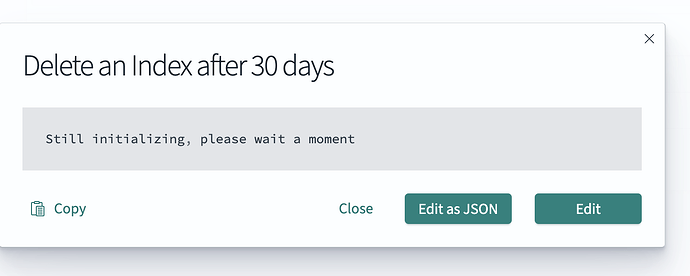Versions (relevant - OpenSearch/Dashboard/Server OS/Browser):
2.18
I have read the docs but still have questions on general behavior of policies with regards to indexes.
It seems that an index can have only one policy. My setup uses data-prepper “raw-pipeline” trace policy which generates indexes in the format: otel-v1-apm-span-######.
That policy has a single action called ‘Rollover’ which has a condition where it rolls the index either when it reaches 50GB or passes age of 24hours (whichever comes first).
How do I delete indexes older than 30 days for example?
Do I update this policy to add new states or do I create a new policy?
I tried adding a new policy but it seems that a new policy only applies to the indexes created from that point on and even then the otel span indexes continue to use the raw-span-policy only. How do I apply the policy to all indexes so that the older indexes are deleted?
I tried added a new policy with first a transition state based on index age and the second being the delete action state but this doesn’t seem to be triggered.
I tried adding older indexes manually to be under a policy but nothing happens. How often are the conditions checked? When a policy is created for an index pattern shouldn’t I see all indexes under this pattern in the ‘Policy managed indexes’ section? What does it mean that a policy is in ‘Running’ state?
Sorry for so many questions but there just isn’t enough documentation on these concepts.



